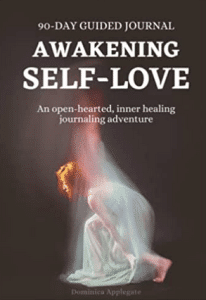by Dominica Applegate
If you’ve found out that your teen is addicted to drugs or alcohol, chances are you have plenty of mixed feelings. You may be angry that he has been lying to you, scared that the drugs will harm him, confused as to why he got addicted, and so on. It’s normal for parents to struggle with various emotions when they find out their teen has picked up an addiction.
Among the tough feelings, there are decisions that you must make concerning your teen and the addiction. Of course, some of your decisions will be based upon whether your teen is cooperative or not. Some teens, when their parents find out they have an addiction, are ready and willing to get help in order to stop. Other teens may not feel they have an addiction or simply don’t want to stop using.
As you go forward through this rough patch with your teen, take some time to learn what you can do for yourself and your teen when it comes to recovery. One thing is for sure: You’re not alone. You may feel disappointed, scared, angry, or confused, but know that there are other parents who are in the same shoes and many substance abuse professionals that are willing to help however they can. If you want to try an alternate method, you might want to check the tracieokeefe website explaining how hypnotherapy works for drug addicts
Here are some tips to keep in mind as you navigate through this time:
- Do not enable
To enable someone means to say or do things for them that allow them to continue on in an irresponsible or destructive manner. When it comes to alcohol and drugs, as a parent, you want to watch out for enabling your teen son or daughter to continue using. Sure, you may think that you’re doing some things out of love, but if it is helping your teen ditch responsibility, it will not help him.
For example, let’s say you give your teen an allowance and he keeps spending it up quickly. You believe he may be using it for alcohol or drugs. He keeps coming to you for more money and tells you that he needs it for food, clothes, or school supplies. Basically, he is lying, but you feel like if you don’t give it to him, he will get angry and throw a fit. He’ll tell you that you’re a lousy parent, so you keep giving him money. This is enabling him. This is helping him to continue on being irresponsible for his allowance money.
Another way parents enable is by justifying their teen’s actions when under the influence. Maybe the police show up at your door questioning the whereabouts of your teen the other night and you lie and say he was home in order to protect him. This enables your son to keep doing mischievous things and feel like he can get away with things without facing consequences.
- Have a heartfelt conversation
Sit down with your teen and have a heartfelt conversation about the addiction. Let him know your concerns. Let him know what you would like to see happen. You will have to come up with consequences and perhaps discuss things like rehab, 12 Step meetings, and counseling. Try not to judge harshly as you have a conversation. Your teen will likely shut down if he thinks you are coming at him with judgment and anger. Remember that addiction is a disease. Yes, you may be angry, but do your best to talk out of concern and not so much anger. He may be more apt to share and be open this way. You can find more info here on how you can properly conduct an intervention for your loved one.
- Realize that lying may occur
Accept that your teen may continue to lie to you about his or her drug use. The truth is that he may not even realize he is lying so much. He may do it so often it’s become a habit trying to cover up his addiction. Try not to take it personal, as the lying does not reflect your parenting skills. It’s just something that most addicts do, not realizing the truth or not caring to tell the truth.
- Realize you can’t fix your teen
As parents we want to be able to help our children in any way that we can. We want them to be happy. When they are struggling, we want to fix things. The reality is that we can’t fix their addiction. We can voice our concerns. We can lay down boundaries and consequences. We can hold space for them to get on the road to recovery, but we can’t really force them to get clean and sober. One saying in recovery goes something like this: “We didn’t cause it. We can’t cure it and we can’t control it.” It’s true. Only they can contend with their addiction.
- Rehabs and 12 Step Meetings
Many recovering addicts got clean and sober attending rehab and/or 12 Step meetings like AA or NA. You have the option of making your teen attend these since you are the primary guardian. Hopefully he will want to go on his own, but he may be more inclined if you sit him down and say, “Hey. We’re going to meetings together for a while.” Then, at some point perhaps he’ll want to go on his own. There’s the option of counseling as well. Look into outpatient rehab services at your local substance abuse center to see what they offer teens.
- Have your own support network
When you find out your teen is addicted to something, it can almost be maddening. All of a sudden you start worrying about everything. You find you can’t trust him. You worry when he’s out with his friends. You worry he will sneak out of the house. You rummage through his room trying to find out if he’s got paraphernalia. You worry he will die. All of that worry can drive you insane, which is why you may want to consider surrounding yourself with a support network like Al-Anon, Nar-Anon, or Codependents Anonymous. There are other parents there that will help you get through this and not lose sight of you and your own life.
Addiction can be overcome
I understand how having a child addicted to alcohol or drugs can affect you. You want to do all that you can to help your teen and at the same time not lose your own piece of mind. It’s a balancing act between being concerned and having a healthy detachment as well so that you don’t go mad or spiral into depression. This is a good reason to find someone to confide in; preferable a professional.
Continue to learn about addiction yourself, as sometimes education can be empowering for both you and your teen. If you find yourself really needing some assistance when it comes to your teen and addiction, please reach out for help. You don’t have to go through this alone.
Biography
















Add Comment